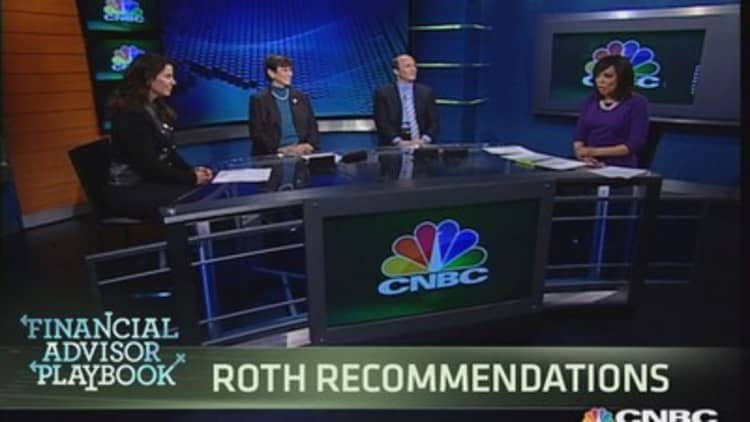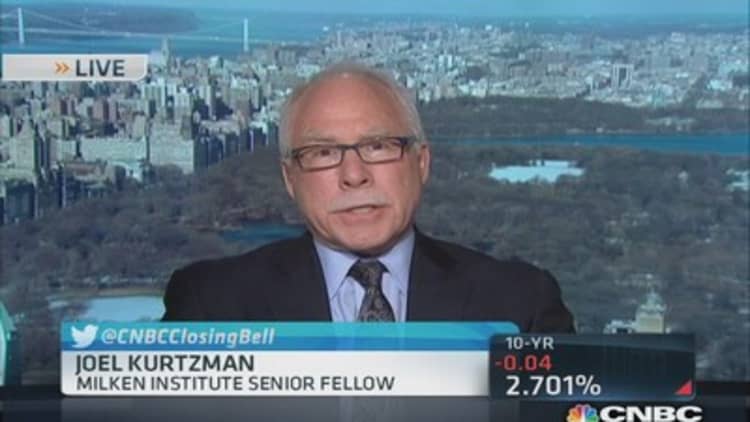
Effective investment management for individual investors requires proper diversification of assets to manage risk and maximize the likelihood of funding their goals.
The traditional approach for doing this focuses on an investment portfolio and, perhaps, other assets on a person's household balance sheet. The problem is that the process often ignores someone's greatest asset: their ability to continue earning income through the fruits of their labor, also known as their "human capital."
Just as with financial capital, the value of human capital may rise and fall over time, but for many it can be highly significant—especially for younger people with years and decades of earnings ahead.
However, the reality is that human capital is, for some people, far more volatile than for others. For instance, careers such as working for the government or being a tenured university professor produce human capital that exhibits "bondlike" risk-and-return characteristics. Meanwhile, more corporate and/or entrepreneurial positions are more stocklike—including the fact that someone's job prospects may be directly correlated to the economic cycle and stock market returns.
Accordingly, effective diversification of someone's entire household balance sheet may require using financial capital to counterbalance the risks of human capital.
Simply put, those with stocklike careers should own more bonds, while those with bondlike careers can afford to own more stocks.
So the next time you're working through financial planning and portfolio decisions, remember to consider whether your career and human capital behave more like a stock or a bond.
Economic value of human capital
The concept of "human capital" draws primarily from the research in life-cycle finance.
The basic principle is relatively straightforward: The present value of your future earning potential over your lifetime is a significant asset and one that can be "converted" into cash flows (or income). To the extent that converted human capital supports lifestyle, it is spent; any remainder is allocated to savings and becomes financial capital.
Over time, as we go through our working years, our human capital is slowly depleted, until the point that when we reach the end of our working career and transition into retirement, we no longer have employment earnings.
At that point—for better or for worse—we rely on our financial capital to sustain our lifestyle for the rest of our lives, as our human capital from employment has been reduced to $0.
Read MoreWhat the 401(k) test lab is cooking up
However, the reality is that the conversion from human capital to financial capital is not always a smooth process.
The economic value of our human capital itself is volatile over time. Its value ebbs and flows—sometimes quite dramatically—as our employment situation changes. While we can project regular cost-of-living—and some additional real—increases in income over time, it's hard to clearly model bonuses, promotions, layoffs, new business ventures and more.
And the reality is that some career paths and their associated economic value are much more volatile than others.

Stock or a bond?
The idea of viewing your human capital as being analogous to either a stock or a bond is a concept that was advocated by Zvi Bodie, a highly respected economist and life-cycle finance researcher.
The concept is related to the recognition that when looking at human capital, not all careers experience the same kind of volatility, risks and returns.
With a bondlike job, the long-term value is stable. There is little income fluctuation from year to year outside of cost-of-living inflation adjustments, as well as an extremely low risk of being terminated. Income generally continues in a stable manner until the individual decides he or she would like to retire and no longer work, or perhaps must cease employment due to a change in health.
Read MoreWays to grow your 401(k) at any age
By contrast, those climbing the corporate ladder, individuals who are self-employed and entrepreneurs launching their own businesses have a human capital value that behaves much more like a volatile stock. It can go through abrupt changes, up or down, as "news" occurs. Such news might include a big job promotion, landing a key new client or, alternatively, being demoted or getting fired.
In fact, because many of these changes in human capital may be tied to the overall economic environment—which impacts the business, whether hiring, layoffs or similar are occurring—the reality is that your estimated human capital value in such stocklike careers may literally show a high correlation to the stock market itself.
Human capital is a key asset for those still working. Additionally, for younger workers, in particular, it may represent a very high percentage of their entire net worth.
When financial planning, human capital meet
The fact that stocklike careers may have far more uncertainty than bondlike careers suggests that investing toward a goal such as retirement, in particular, might be conducted differently.
Given that more volatile, equity-centric portfolios have greater "retirement date" risk—and therefore a greater risk of being misaligned with an involuntary retirement transition—it again appears crucial to ensure that human and financial capital are properly diversified and complement/counterbalance risks rather than amplifying them.
The bottom line: Human capital is a key asset for those still working. Additionally, for younger workers, in particular, it may represent a very high percentage of their entire net worth.
Read MoreCNBC audience knows the power of saving
As a result, making effective decisions about whether to invest in human capital, how to best convert it to financial capital and how much risk to take with financial capital, given your risks of human capital, should be key financial-planning decisions. Sometimes it's even better to invest in your human capital, such as through job training, than to save your financial capital (for example, in a Roth IRA).
As a starting point, perhaps, everyone should attempt to look at human capital on their household balance sheets to recognize the prospective economic value that is there and to be sure it is managed and diversified appropriately.
Michael Kitces is a partner and the director of research for Pinnacle Advisory Group and publisher of the financial-planning industry blog Nerd's Eye View. You can follow him on Twitter at @MichaelKitces.




